Meals and snacking patterns often need to be altered when traveling. As a result, I get questions from both athletes and non-athletes alike about how to best fuel their bodies: Should I stop eating after 8:00 p.m.? Which is better: to eat three or six meals a day? Does it really matter if I skip breakfast? Because meals can be a central part of our social life?and busy training schedules can contribute to chaotic eating patterns?many athletes disregard the fact that food is more than just fuel. When (and what) you eat impacts your future health (and today?s performance).
Food consumption affects the central clock in your brain. This clock controls circadian rhythms and impacts all aspects of metabolism, including how your organs function. Restricting daytime food and eating in chaotic patterns disrupts normal biological rhythms. The end result: erratic meal timing can impact the development of cardiovascular disease (CVD), type-2 diabetes and obesity.
Breakfast: Is It Really the Most Important Meal of the Day? If you define breakfast as eating 20 to 35 percent of your daily calories within two-hours of waking, about one-fourth of U.S. adults do not eat breakfast. This drop in breakfast consumption over the past 40 years parallels the increase in obesity. Breakfast skippers tend to snack impulsively (think donuts, pastries, chips and other fatty foods). They end up with poorer quality diets and increased risk of diabetes, heart disease, high blood pressure and overweight/obesity.
Eating a wholesome breakfast starts the day with performance enhancing fuel at the right time for your body?s engine. If you exercise in the morning, fuel up by having part of your breakfast before working out and then enjoy the rest of the breakfast afterwards. This will help you get more out of your workout, improve recovery?and click with natural circadian rhythms.
Meal Frequency: Is it Better to Eat 1, 3, 6, 9 or 12 Times a Day? In terms of weight, eating 2,000 calories divided into 1, 3, 6, 9, or 12 meals doesn?t change your body fatness. In a study where breakfast provided 54 percent of the day?s calories and dinner only 11 percent of calories?or the reverse, the subjects (women) had no differences in fat loss. Yet, in terms of cardiovascular health, the big breakfast led to significant reductions in metabolic risk factors and better blood glucose control. The bigger breakfast matched food intake to circadian rhythms that regulated metabolism.
Athletes who skimp at breakfast commonly get too hungry and then devour way too many calories of ice cream and cookies. If they do this at night, when the body is poorly programmed to deal with an influx of sweets, they are paving their path to health issues. Hence, if you are eating a lot of calories at night, at least make them low in sugary foods, to match the reduced insulin response in the evening. This is particularly important for shift workers, who eat at odd hours during the night and tend to have a higher rate of heart disease.
Should you stop eating after 8:00 p.m.? There?s little question that late-night eating is associated with obesity. Research with 239 U.S. adults who ate more than one-third of their calories in the evening had twice the risk of being obese. Among 60,000 Japanese adults, the combination of late-night eating plus skipping breakfast was associated with a greater risk of diabetes, heart disease and obesity.
A study with 2,200 U.S. middle-aged women reports each 10 percent increase in the number of calories eaten between 5:00 p.m. and midnight was associated with a 3 percent increase in C-reactive protein, a marker of inflammation. Inflammation is associated with diabetes, CVD and obesity. Wise athletes make a habit of eating the majority of their calories earlier in the day, to curb evening eating.
The Best Plan: Plan to Eat Intentionally. Failing to plan for meals can easily end up in missed meals, chaotic fueling patterns and impaired health, to say nothing of reduced performance. If you struggle with getting your food act together, consult with a sports dietitian who will help you develop a winning food plan. Use the referral network at http://www.SCANdpg.org to find a local sports RD.
Instead of holding off to have a big dinner, enjoy food when your body needs the fuel: when it is most active. If you worry you?ll eat just as much at night if you eat more during the day (and you?ll ?get fat?), think again. Be mindful before you eat and ask yourself: Does my body actually need this fuel?
Most active women and men can and should enjoy about 500 to 700 calories four times a day: breakfast, early lunch, second lunch, and dinner. To overcome the fear that this much food will make you fat, reframe your thoughts. You are simply moving calories in your pre- and/or post-dinner snacks into a substantial and wholesome second lunch (such as a peanut butter-honey sandwich, or apple, cheese and crackers). The purpose of this second lunch is to curb your evening appetite, refuel your muscles from your workout earlier in the day (or fuel them for an after-work session) and align your food intake to your circadian rhythms. Give it a try?
By?Nancy Clark, MS RD CSSD
Click here for full podcast playlist.













